Just noticed that on Chrome only, RTCIceCandidate no longer returns an IP, but rather an obfuscated address.
RTCIceCandidate
address: "a5b3ef18-2e66-4e24-91d2-893b93bbc1c1.local"
candidate: "candidate:169888242 1 udp 2113937151 a5b3ef18-2e66-4e24-91d2-893b93bbc1c1.local 47871 typ host generation 0 ufrag 7dHv network-cost 999"
component: "rtp"
foundation: "169888242"
port: 47871
priority: 2113937151
protocol: "udp"
relatedAddress: null
relatedPort: null
sdpMLineIndex: 0
sdpMid: "0"
tcpType: ""
type: "host"
usernameFragment: "7dHv"
Notice the first property of RTCIceCanadate is "address", and "ip" is no longer part of this object.
The following code determines the local IP address of a browser. Still works on MOZ.
function discover()
{
try{
//Get Local IP
window.RTCPeerConnection = window.RTCPeerConnection || window.mozRTCPeerConnection || window.webkitRTCPeerConnection; //compatibility for firefox and chrome
if (pc)
pc.close();
pc = new RTCPeerConnection({iceServers:[]});
pc.onicecandidate = onIceCandidate;
pc.createDataChannel("");
pc.createOffer(pc.setLocalDescription.bind(pc), noop);
} catch (e)
{ console.log(e.message);}
}
function noop()
{
}
function onIceCandidate(ice)
{
console.log(ice.candidate);
if(!ice || !ice.candidate || !ice.candidate.candidate) return;
var my_ip = /([0-9]{1,3}(\.[0-9]{1,3}){3}|[a-f0-9]{1,4}(:[a-f0-9]{1,4}){7})/.exec(ice.candidate.candidate)[1];
this.onicecandidate = noop;
ip = my_ip.split(".")[0]+'.'+my_ip.split(".")[1]+'.'+my_ip.split(".")[2];
}
Is WebRTC officially now a fractured standard? MOZ still lists "ip" as a member of RTCIceCandidate, with no mention of the "address" member that Chrome returns.
Is there a way to de-obfusucate the mDNS address back to an ip address without forcing users to mess around with browser settings they don't understand?
